May 14 stands as one of history’s most eventful days, witnessing the rise and fall of empires, groundbreaking discoveries, and moments that shaped our modern world across centuries of human achievement.

Politics and Government Events on May 14
1948 – Israel Declares Independence

Israel declared its independence and established a provisional government on this historic date. The declaration immediately triggered attacks from neighboring Arab states, launching the 1948 Arab-Israeli War.
The new nation faced existential threats from its first moments of existence. This pivotal moment reshaped Middle Eastern geopolitics for generations to come.
1955 – Warsaw Pact Formed
Eight Communist bloc countries, including the Soviet Union, signed the Warsaw Pact mutual defense treaty. This Cold War alliance directly challenged NATO’s growing influence in Western Europe.
The treaty created a formidable military alliance spanning Eastern Europe. The pact would dominate regional security dynamics for over three decades.
1935 – Philippines Constitution Ratified
The Constitution of the Philippines received approval through a popular vote. This democratic process marked a crucial step toward Philippine independence from American colonial rule.
Filipino citizens embraced their constitutional framework with overwhelming support. The document would guide the nation through its transition to full sovereignty.
1970 – Red Army Faction Forms
Andreas Baader gained freedom from custody through a dramatic rescue by Ulrike Meinhof and Gudrun Ensslin. This pivotal moment marked the formation of the notorious Red Army Faction terrorist organization.
The rescue operation shocked German authorities and launched decades of domestic terrorism. The group would become one of Europe’s most feared radical organizations.
2004 – South Korean Constitutional Crisis Resolved
The Constitutional Court of South Korea overturned President Roh Moo-hyun’s impeachment. This decision ended a major political crisis that had paralyzed the nation for months.
The court’s ruling restored stability to South Korean democracy. Roh returned to office with renewed legitimacy and popular support.
1980 – Fiji Military Coup
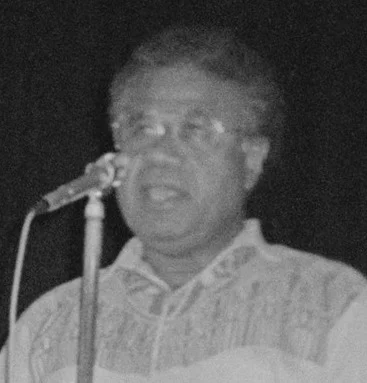
Lieutenant Colonel Sitiveni Rabuka led a military coup that ousted Prime Minister Timoci Bavadra from power. The takeover shattered Fiji’s democratic traditions and sparked international condemnation.
The coup created lasting ethnic tensions throughout Fijian society. Military intervention would repeatedly disrupt the nation’s political development for decades.
Military and Naval History on May 14
1940 – Rotterdam Bombing
The Luftwaffe bombed Rotterdam despite an active ceasefire, killing approximately 900 civilians. This devastating attack destroyed the historic city center and violated international warfare conventions.
The bombing forced Dutch surrender and demonstrated Nazi Germany’s ruthless military tactics. Rotterdam’s destruction became a symbol of wartime brutality against civilian populations.
1943 – AHS Centaur Sinking
A Japanese submarine sank the hospital ship AHS Centaur off Queensland’s coast. The attack violated international laws protecting medical vessels and shocked the Allied nations.
The sinking claimed numerous medical personnel and wounded soldiers. This war crime intensified Australian resolve against Japanese forces in the Pacific theater.
1931 – Ådalen Shootings
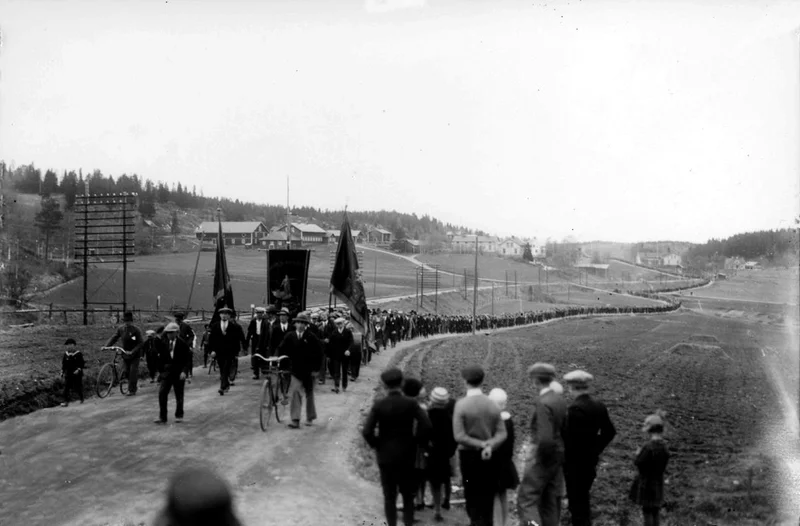
Swedish military forces killed five unarmed civilians during labor protests in Ådalen. The shootings occurred when authorities intervened to suppress striking workers demanding better conditions.
The tragic event sparked national outrage and reformed Swedish labor relations. The shootings became a turning point in the nation’s approach to industrial disputes.
1980 – Sumpul River Massacre
Government forces perpetrated the Sumpul River massacre in Chalatenango, El Salvador. This atrocity occurred during the escalating Salvadoran Civil War that devastated the region.
The massacre exemplified the brutal tactics employed throughout the conflict. International human rights organizations condemned the systematic violence against civilians.
Science and Discovery Milestones on May 14
1973 – Skylab Launches

NASA successfully launched Skylab, America’s first space station into Earth orbit. This groundbreaking achievement marked a new era in human space exploration and scientific research.
The space station would host multiple crews conducting vital experiments. Skylab demonstrated America’s capability to maintain permanent human presence in space.
2021 – China’s Mars Success

China successfully landed Zhurong, the country’s first Mars rover, on the Red Planet. This historic achievement placed China among the elite nations capable of interplanetary exploration.
The rover’s landing demonstrated China’s rapidly advancing space technology capabilities. Zhurong would conduct extensive geological surveys and search for signs of ancient water.
2010 – Atlantis Final Mission

Space Shuttle Atlantis launched on mission STS-132 to deliver the Russian ISS component Rassvet. This mission was originally planned as Atlantis’s final flight before Congress approved additional missions.
The shuttle carried crucial supplies and equipment to the International Space Station. Atlantis’s mission demonstrated continued international cooperation in space exploration.
1939 – Medical History Made
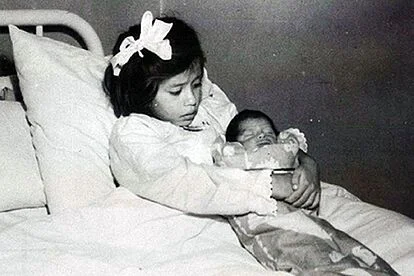
Lina Medina became the youngest confirmed mother in medical history at age five. This extraordinary case challenged medical understanding and raised profound ethical questions.
The case was documented extensively by medical professionals worldwide. Medina’s situation highlighted the importance of child protection and medical ethics.
Cultural and Arts Events on May 14
1925 – Mrs. Dalloway Published

Virginia Woolf’s groundbreaking novel Mrs. Dalloway was published to critical acclaim. The modernist masterpiece revolutionized narrative techniques and psychological realism in literature.
The novel’s stream-of-consciousness style influenced countless writers. Mrs. Dalloway established Woolf as one of the most innovative voices in modern literature.
1998 – Frank Sinatra Dies
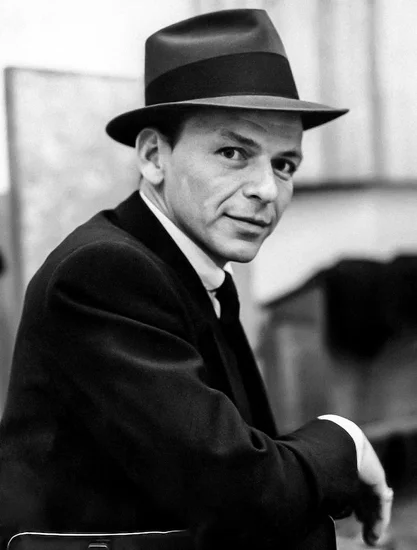
Frank Sinatra, the legendary American singer and actor, passed away at age 82. His death marked the end of an era in American entertainment and popular music.
Sinatra’s career spanned decades and influenced countless performers. His distinctive voice and charismatic personality defined mid-20th century American culture.
1915 – B.B. King Dies
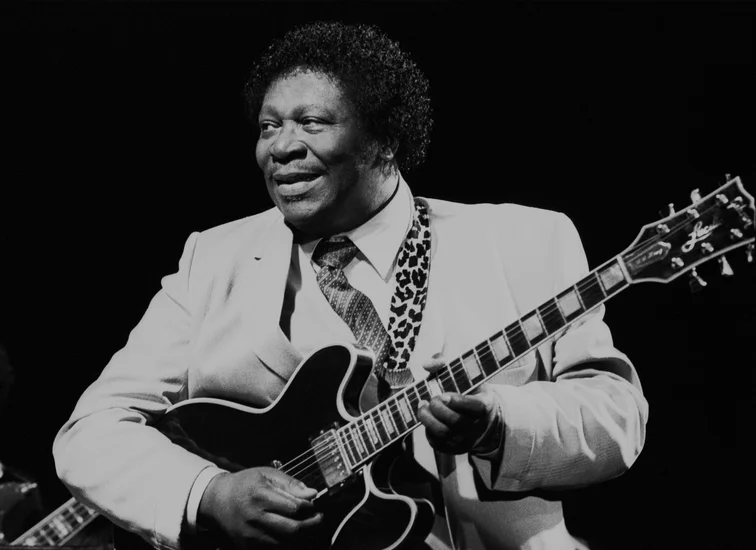
B.B. King, the influential blues guitarist and singer, died at age 89. His passing marked the end of a legendary career that shaped modern blues and rock music.
King’s guitar work inspired generations of musicians across multiple genres. His contribution to American music earned him recognition as one of the greatest guitarists ever.
Religious and Social Events on May 14
1918 – Two-Minute Silence Begins
Cape Town Mayor Sir Harry Hands inaugurated the Two-Minute Silence tradition. This solemn observance honored fallen soldiers and became a global commemoration practice.
The silence provided a moment of collective remembrance and reflection. Many nations adopted this tradition to honor their war dead.
1961 – Freedom Riders Attacked
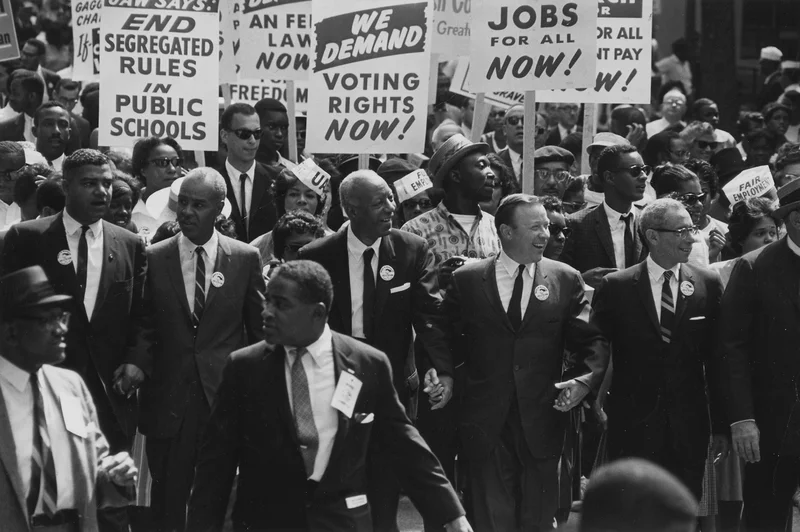
A white mob attacked Freedom Riders near Anniston, Alabama, fire-bombing their bus. The violent assault on civil rights protesters shocked the nation and galvanized the movement.
The attack demonstrated the dangerous resistance to racial integration. The Freedom Riders’ courage in facing such violence inspired broader civil rights activism.
1965 – Labor Pioneer Dies
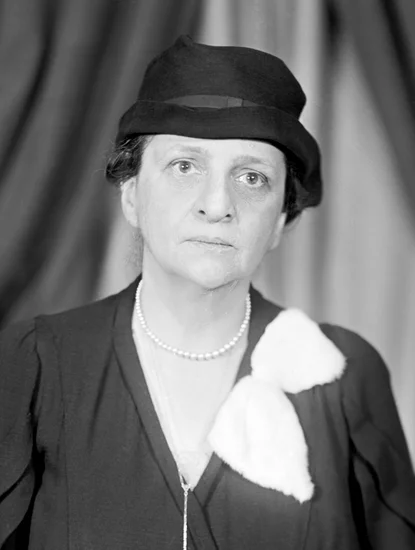
Frances Perkins, the first woman to serve in a U.S. presidential cabinet, died at age 85. Her death marked the end of a groundbreaking career in labor rights advocacy.
Perkins championed workers’ rights and social security programs. Her legacy includes many fundamental protections for American workers.
Business and Economic Events on May 14
1913 – Rockefeller Foundation Established
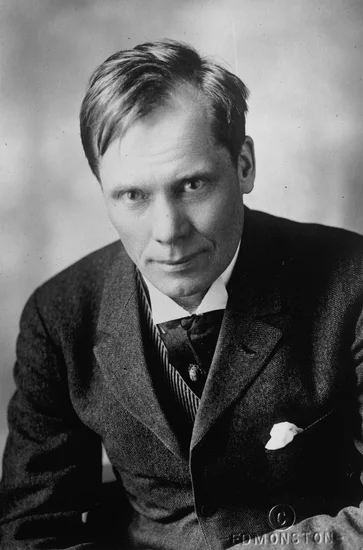
New York Governor William Sulzer approved the Rockefeller Foundation charter with a $100 million donation. This philanthropic organization would become one of the world’s most influential charitable foundations.
The foundation launched with unprecedented financial resources for social causes. Its establishment marked a new era of organized philanthropy and social investment.
1953 – Milwaukee Brewery Strike
Approximately 7,100 brewery workers in Milwaukee began a major walkout. The strike marked the beginning of the significant 1953 Milwaukee brewery strike that disrupted regional beer production.
The labor action highlighted ongoing tensions between workers and management. The strike would have lasting impacts on Milwaukee’s industrial relations.
1919 – H.J. Heinz Dies
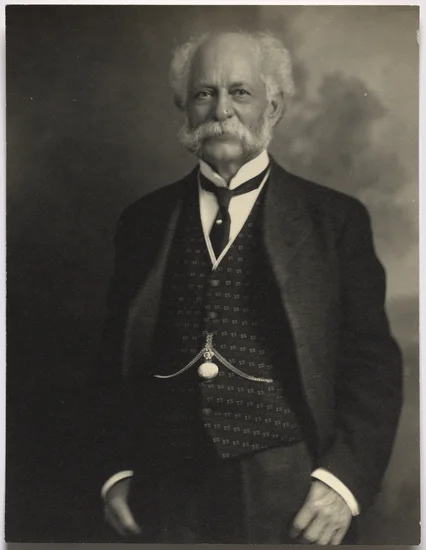
Henry J. Heinz, founder of the H.J. Heinz Company, passed away at age 75. His death marked the end of an era for one of America’s most successful food companies.
Heinz built his company into a global food empire. His innovative marketing and quality standards revolutionized the processed food industry.
Transportation and Infrastructure on May 14
1951 – Talyllyn Railway Preservation
Trains operated on the Talyllyn Railway in Wales for the first time since preservation efforts began. This historic achievement made it the world’s first railway operated entirely by volunteers.
The preservation effort demonstrated the power of community activism. The railway’s success inspired similar heritage preservation projects worldwide.
1988 – Carrollton Bus Collision
A drunk driver caused a devastating collision with a church bus on Interstate 71 near Carrollton, Kentucky. The crash and subsequent fire killed 27 people in one of America’s deadliest drunk driving incidents.
The tragedy prompted significant changes in drunk driving laws. The incident also led to improved safety standards for converted school buses.
1977 – Lusaka Airport Crash
A Dan-Air Boeing 707 crashed during approach to Lusaka International Airport in Zambia. The accident killed six people and highlighted ongoing aviation safety challenges in developing nations.
The crash investigation revealed weather-related factors in the tragedy. The incident contributed to improved approach procedures at African airports.
Sports and Recreation on May 14
2008 – Manchester Football Violence

The Battle of Piccadilly Gardens erupted between Zenit and Rangers supporters in Manchester. The violent clashes injured 39 police officers and resulted in multiple arrests.
The incident highlighted ongoing problems with football hooliganism. Greater Manchester Police implemented new crowd control strategies following the violence.
1995 – Poker Legend Dies

Doyle Brunson, the legendary poker player, passed away at age 89. His death marked the end of an era in professional poker and gambling culture.
Brunson’s career spanned decades and helped popularize tournament poker. His strategic innovations influenced generations of professional players.
1915 – Blues King Dies

B.B. King, the influential blues musician, died at age 89. His passing marked the end of a legendary career that shaped modern blues and influenced rock music.
King’s distinctive guitar style inspired countless musicians. His contribution to American music earned him recognition as one of the greatest performers ever.
Notable Births on May 14
1944 – George Lucas Born
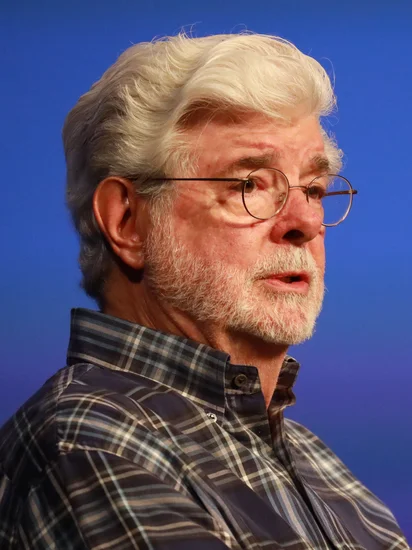
George Lucas, the legendary filmmaker and creator of Star Wars, was born in Modesto, California. His childhood fascination with cars and adventure stories would shape his creative vision.
Lucas would revolutionize cinema through groundbreaking special effects and storytelling. His film empire transformed Hollywood and popular culture worldwide.
1984 – Mark Zuckerberg Born

Mark Zuckerberg, co-founder of Facebook, entered the world in White Plains, New York. His early programming skills and Harvard connections would prove pivotal.
Zuckerberg would create the world’s largest social media platform. His innovations fundamentally changed how people communicate and share information globally.
1969 – Cate Blanchett Born

Cate Blanchett, the Academy Award-winning actress, was born in Melbourne, Australia. Her theatrical background provided the foundation for her distinguished career.
Blanchett would become one of cinema’s most versatile performers. Her powerful performances earned critical acclaim and numerous prestigious awards.
1952 – David Byrne Born

David Byrne, lead singer of Talking Heads, was born in Dumbarton, Scotland. His family’s move to America exposed him to diverse musical influences.
Byrne would become one of new wave music’s most innovative artists. His artistic vision extended beyond music into visual arts and performance.
1936 – Bobby Darin Born
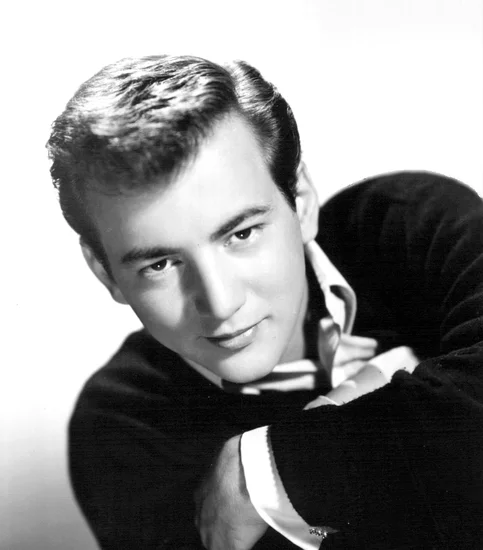
Bobby Darin, the versatile entertainer, was born in the Bronx, New York. His determination to succeed despite health challenges drove his ambitious career.
Darin would master multiple musical genres and acting. His dynamic performances made him one of the most popular entertainers of his era.
1971 – Sofia Coppola Born

Sofia Coppola, the acclaimed filmmaker, was born in New York City. Growing up in a filmmaking family provided unique insights into cinema.
Coppola would establish herself as a distinctive directorial voice. Her films would earn critical praise and numerous awards for their artistic vision.
1943 – Jack Bruce Born
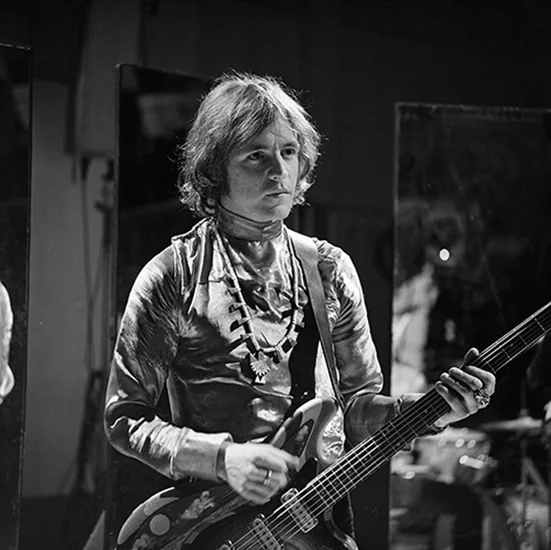
Jack Bruce, the innovative bassist and singer, was born in Bishopbriggs, Scotland. His classical training combined with rock sensibilities created a unique sound.
Bruce would become a founding member of the legendary band Cream. His bass playing revolutionized rock music and influenced countless musicians.
1952 – Robert Zemeckis Born

Robert Zemeckis, the visionary director, was born in Chicago, Illinois. His early interest in filmmaking and special effects shaped his creative approach.
Zemeckis would direct beloved films like Back to the Future. His innovative use of technology pushed the boundaries of cinematic storytelling.
Notable Deaths on May 14
1912 – August Strindberg Dies

August Strindberg, the influential Swedish playwright and novelist, died at age 63. His death marked the end of a prolific career that shaped modern drama.
Strindberg’s psychological realism influenced countless writers and playwrights. His works explored complex human relationships and social criticism.
1940 – Emma Goldman Dies
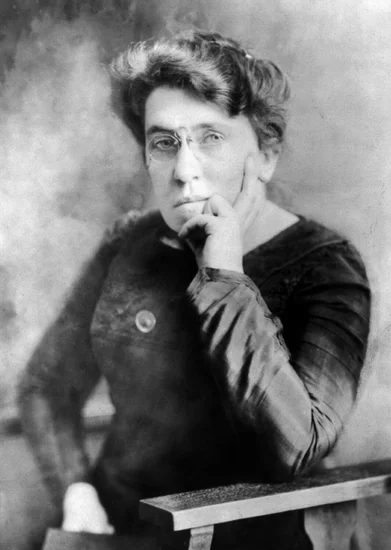
Emma Goldman, the prominent anarchist and activist, passed away at age 70. Her death ended a lifetime of advocacy for social justice and women’s rights.
Goldman’s radical politics and powerful speeches challenged conventional society. Her writings on anarchism and feminism influenced generations of activists.
1987 – Rita Hayworth Dies

Rita Hayworth, the iconic Hollywood actress and dancer, died at age 68. Her death marked the end of one of cinema’s most glamorous careers.
Hayworth’s beauty and talent made her a global star. Her struggle with Alzheimer’s disease brought attention to this devastating condition.
1956 – Joan Malleson Dies
Joan Malleson, the pioneering English physician, passed away at age 67. Her death marked the end of a groundbreaking medical career.
Malleson advocated for women’s health and reproductive rights. Her medical practice challenged conventional attitudes toward female sexuality and contraception.
1959 – Sidney Bechet Dies
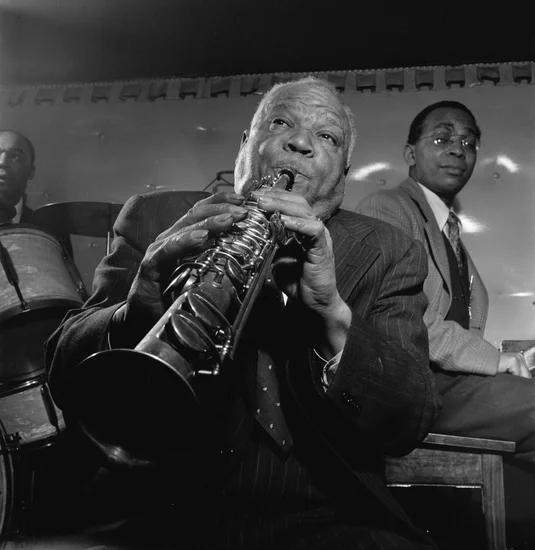
Sidney Bechet, the legendary jazz saxophonist and clarinetist, died at age 62. His death marked the end of a pioneering career in early jazz music.
Bechet’s innovative playing style influenced countless musicians. His contributions to jazz helped establish the genre’s artistic legitimacy.
1973 – Jean Gebser Dies
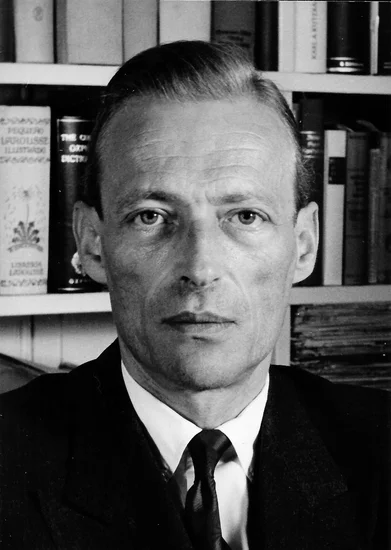
Jean Gebser, the influential philosopher and linguist, passed away at age 68. His death ended a career dedicated to understanding human consciousness evolution.
Gebser’s theories about consciousness structures influenced philosophy and psychology. His work provided frameworks for understanding cultural and spiritual development.
Holidays and Observances on May 14
Independence Day Paraguay
Paraguay celebrates its Independence Day on May 14, commemorating freedom from Spanish colonial rule. The nation achieved independence in 1811 through peaceful negotiations rather than violent revolution.
Paraguayans celebrate with parades, cultural events, and traditional festivities. The holiday reflects the nation’s unique path to sovereignty in South America.
Hastings Banda’s Birthday Malawi
Malawi observes the birthday of Hastings Banda, the nation’s first president. This day honors his role in leading the country to independence from British colonial rule.
The observance reflects Malawi’s complex relationship with its founding leader. Banda’s legacy encompasses both independence achievements and authoritarian governance.
National Unification Day Liberia
Liberia celebrates National Unification Day, promoting unity between various ethnic groups. The holiday emphasizes reconciliation and national solidarity across diverse communities.
The observance addresses historical tensions between different Liberian populations. The day encourages dialogue and cooperation among all citizens.
